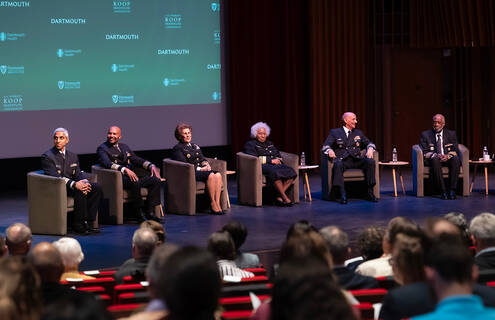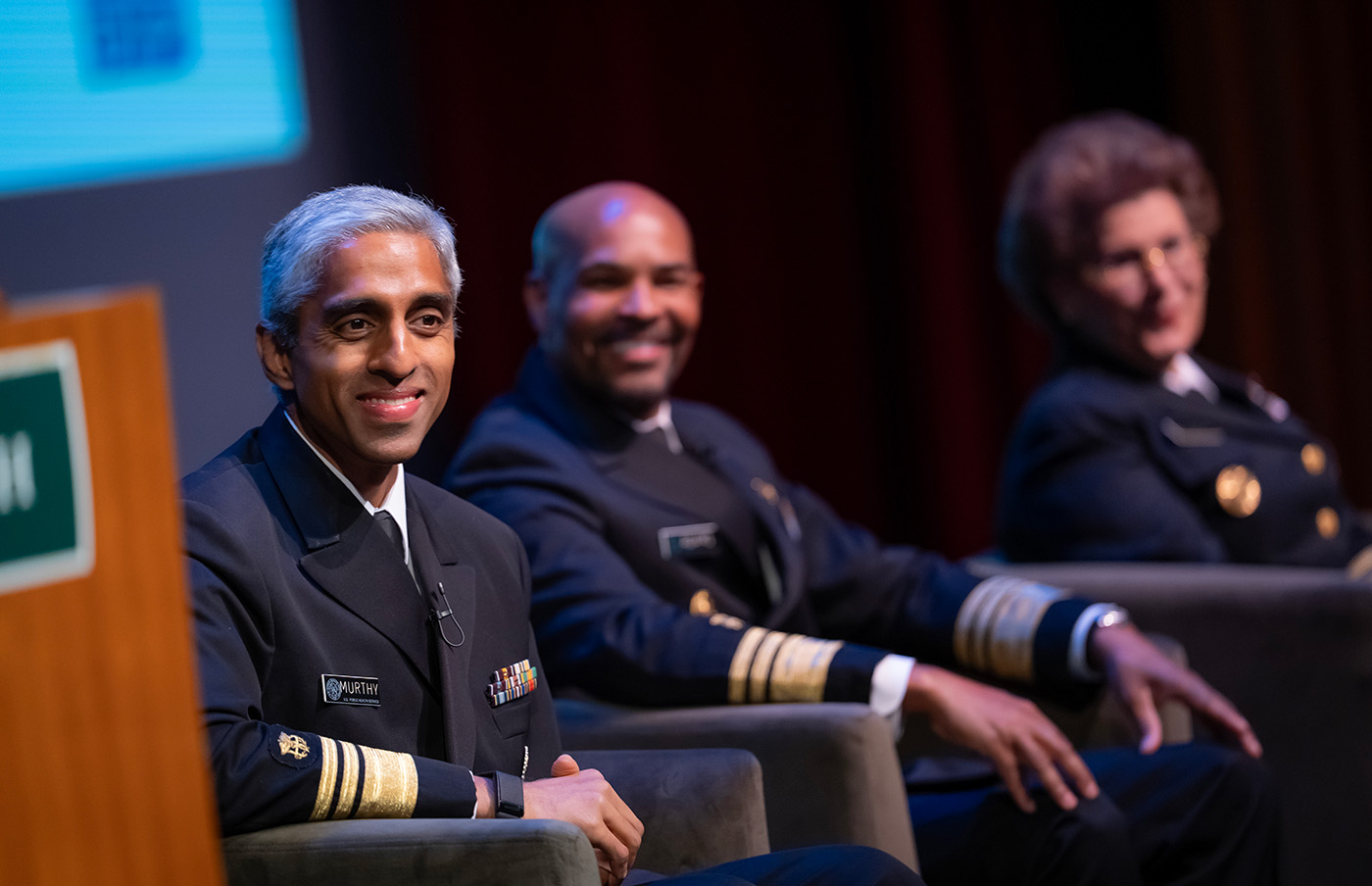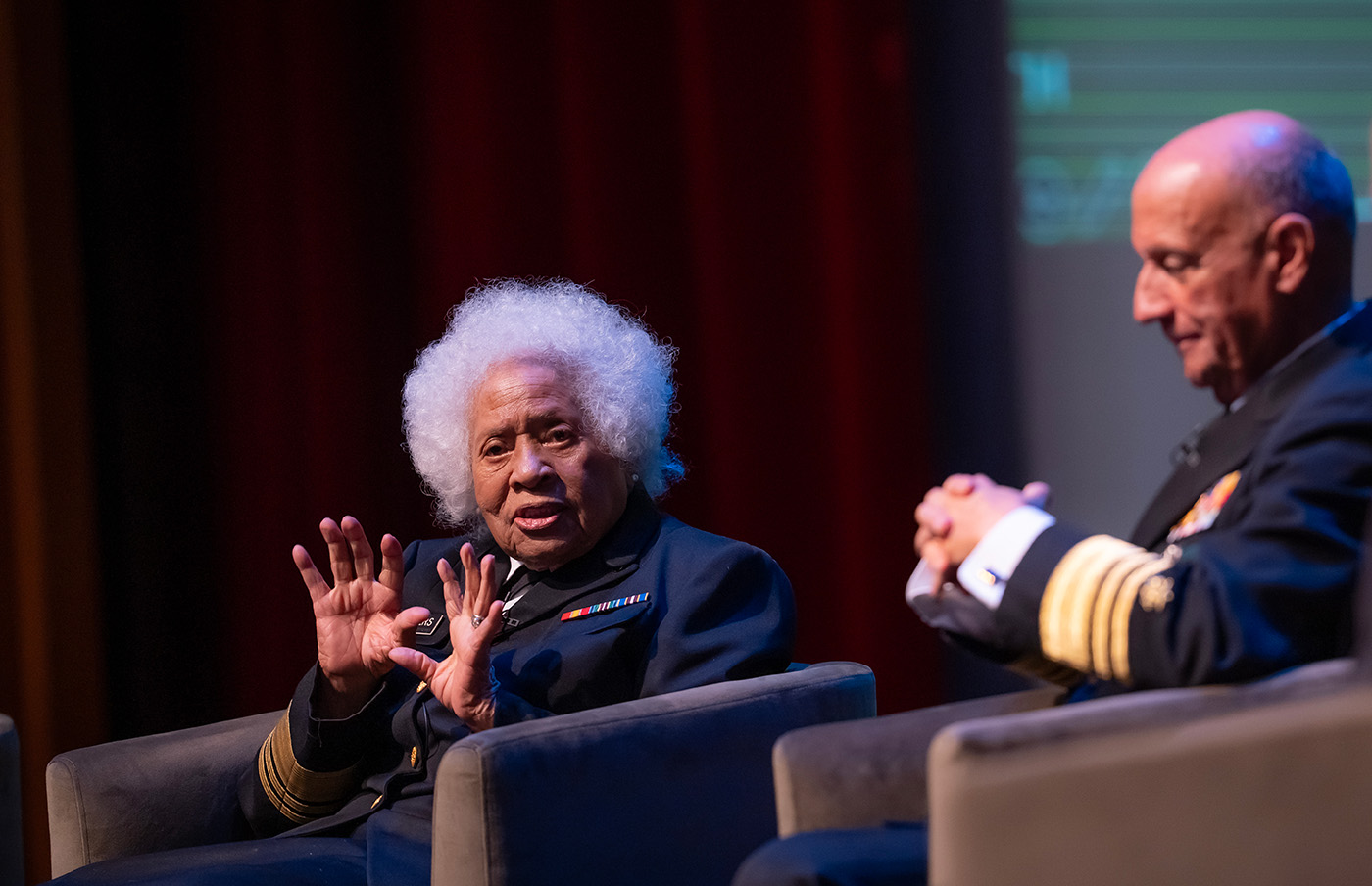
“Mental health is one of the most valuable resources we have,” said M. Joycelyn Elders, MD, MS, who was U.S. surgeon general under the Clinton administration.
Elders was one of six former surgeons general expressing concern for young people at the "Global Mental Health Crisis Symposium" sponsored by Dartmouth Health and Geisel School of Medicine last week.
“When you have 31 percent of United States children, one out of three, having some kind of mental issue in the last 30 days, you have a problem,” said Antonia Coello Novello, MD, MPH, who served as surgeon general under President George H.W. Bush. “But what worries me the most, one out of five has thought about suicide. Sixteen percent have made a plan, and nine percent have accomplished it.”
The recommendation from these surgeons general?
We need to start taking concrete action to improve mental health, which includes trying to tackle the harmful effects of social media.
The problem
The surgeons general are not alone in their concerns around the deteriorating state of youth’s mental health.
In early September, the World Health Organization (WHO) issued a statement that said that globally, one in seven 10-to-19-year-olds experiences a mental disorder. Among their findings were that depression, anxiety and behavioral disorders are among the leading causes of illness and disability among adolescents. They also pointed out that suicide is the third leading cause of death among those aged 15–29 years old.
I don’t think anybody fully appreciated what the ultimate consequences of the digital age would be upon us
Richard H. Carmona, MD, MPH, FCAS
Also in that WHO statement was the fact that the consequences of failing to address adolescent mental health conditions extend to adulthood, impairing both physical and mental health and limiting opportunities to lead fulfilling lives as adults.
Recommendations for addressing declining mental health among youth
At the morning panel, the surgeons general offered concrete ways that we can work to improve the mental health of young people. Recommendations included:
- Later start times at school
- Removing stigmas around mental health conditions
- Focusing on prevention as well as treatment
- Increasing awareness around the neurotoxic effects of THC in marijuana
- Containing widespread youth gambling
- Providing more education around LGBTQ struggles
- And boosting the number of psychiatrists.
“Parents often neglect to seek care for their children due to embarrassment and fear that such a diagnosis might interfere with the child’s future,” said David Satcher, MD, PhD, surgeon general during the Clinton and George W. Bush administrations.
“We must acknowledge and find ways to overcome the barriers of stigma. We need to build public awareness regarding mental health and effective treatment. We must address a serious shortage of mental health providers. We also must address the lack of training available for many communities,” he said.

Speaking to some of the ways that we can further help our youth, Jerome M. Adams, MD. MPH, surgeon general during President Donald Trump’s first term in office, said: “We spend a disproportionate amount of our resources on diagnosis and treatment and not on prevention and wellness. I think oftentimes that conversation comes at the expense of thinking about mental health, not as mental illness, but as mental wellness, and what can we do to create communities that are more supportive of our young people, so that they don’t have problems in the first place, so that they don’t feel the need to self-medicate.”
The influence of social media
Perhaps the strongest message of the morning, however, was the harm of social media.
“I believe that social media is one of the biggest causes of children having problems,” Novello said, citing cyberbullying, loneliness, and body issues exacerbated by social media.
“I don’t think anybody fully appreciated what the ultimate consequences of the digital age would be upon us, and so now we’re trying to fix it because we didn’t recognize it to begin with,” said Richard H. Carmona, MD, MPH, FCAS, who served as surgeon general under President George W. Bush.
Vivek H. Murthy, MD, surgeon general during the Obama and Biden administrations, said an estimated 95 percent of minors use social media, and there’s no data that demonstrates social media is safe for youths.
“But what is also problematic is the data that shows us that adolescents who were using 3.5 hours a day or more of social media faced double the risk of anxiety and depression symptoms,” Murthy said. “And the average use today of social media among adolescents is 4.8 hours. It’s well beyond that threshold. And by the way, that’s not all screen time, that is just social media time.”
The addictive nature of social media
Psychologists and psychiatrists say a large part of the problem is social media’s addictive nature.
In this article, Dartmouth Health Clinical Psychologist M. Kay Jankowski, PhD; Jacob Borodovsky, PhD, a research scientist at the Center for Technology and Behavioral Health; and others talk about how social media is addictive in part because its algorithm rewards users with likes, comments, and shares, activating a dopamine rush of motivation and reward.
Borodovsky is working on a study exploring why adolescent mental health problems have increased while adolescent substance use has declined. One big reason, he thinks, could be digital technologies.
Social media addiction is real, notes Julie Balaban, MD, a Dartmouth Health Children's child and adolescent psychiatrist.
Other ideas to limit the effects of social media on our kids
Among recommendations from the surgeons general on mitigating the impact of technology is keeping phones out of bedrooms, creating “tech-free zones” in areas of the house, and shutting off smartphones at a set time each night to help combat the urge to check TikTok, Instagram and other popular apps.

“That keeps the kids from being on the phone all night…These are things that parents could do today,” said Elders.
In this video, Susanne E. Tanski, MD, MPH, suggests similar approaches. Research supports her recommendations.
A 2021 study found that the frequency of social media use, particularly in the evenings, is associated with a delay in bedtime, increased difficulty falling asleep, shorter sleep duration, and poorer sleep quality.
Lastly, Murthy emphasized that we also need to find ways to mitigate the isolation that comes with social media by continuing to foster person-to-person connections.
Concluded Murthy at the symposium: “There is power in human presence.”
Related article: Social Media and Teen Mental Health